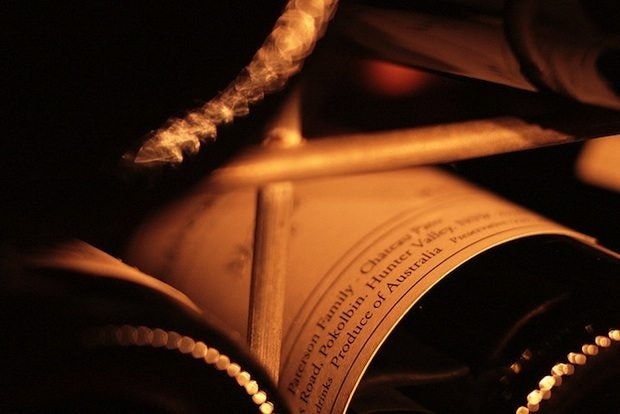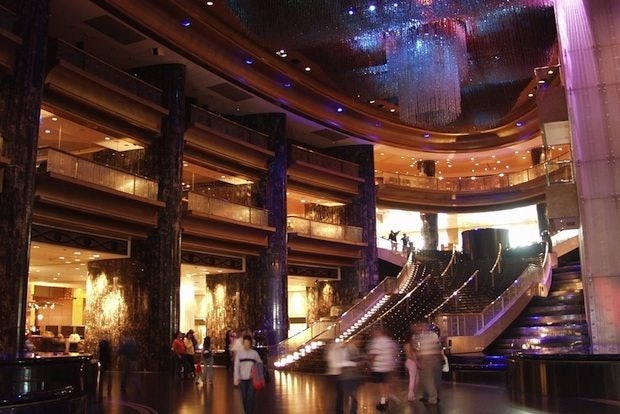
Australian winemakers hope free trade may boost slumping exports of Australian wine to China. (Flickr/PQz)
As Australia’s prime minister remains in the midst of a free-trade diplomatic blitz through Asia, many luxury-related industries in Australia are waiting with intense anticipation to see if they will have greater opportunities to cash in on China’s love for travel and high-end goods.
Australian Prime Minister Tony Abbott left on Saturday for a series of trade missions to Japan, South Korea, and China in hopes of boosting Australian exports to the countries through free-trade deals and loosened restrictions on travel. With a group of 600 business representatives, the mission represents Australia’s massive efforts to decrease trade barriers. Australian industries related to the luxury sphere are highly anticipating the opportunity to boost exports to Asian markets and benefit off tourism from neighboring countries.
So far, Abbot has inked a new free-trade agreement with Japan and plans to do the same with South Korea on Tuesday. As a result, Australian exporters of items like wine, cheese, chocolate, and wool are set to benefit from lowered or eliminated tariffs.
However, the big market that producers of premium Australian goods have their eyes set on is China. Although it’s not expected that a free-trade agreement with China will be reached with this round of negotiations, Abbott hopes to further negotiations that have been ongoing for nine years now.
Australia’s tourism industry is hoping to see huge benefits from a trade deal with China. One major player trying to push this through is billionaire casino owner James Packer, who is accompanying Abbott on the trip and has been highly vocal about his hopes to attract Chinese high rollers to his casinos. Packer’s main interest is lowering visa restrictions so Chinese tourists can take advantage of Australia’s gambling and beaches more easily. Packer candidly told the Guardian:
"I think over 70 countries can apply for an Australian tourist visa online, but China isn't one of them," Packer said.
"Why should the visa requirements for a wealthy Chinese visitor wanting to come to Australia be any harder than the visa requirements for a wealthy American?
"Visa applications are done in English, not Mandarin, that's stupid. And they are not done online, that's stupid."

Billionaire James Packer hopes Australia will loosen visa restrictions on Chinese visitors in order to earn more revenue for his Crown Casinos. (Wikimedia)
Meanwhile, Australia’s agricultural producers of high-end goods are also hoping for lower tariffs on exports in order to take advantage of the massive China market. China currently accounts for 75 percent of Australia’s wool exports, and the material is becoming an increasingly popular luxury fiber in China. As a result of its growing clout, Chinese companies are looking for acquisitions of major Australian wool producers to cut out the middleman.
In addition, Australian wineries facing slumping exports to China hope to gain an advantage from lower tariffs. This year, many of Australia’s major winemakers have been feeling the effects of China’s anti-corruption campaign. Pernod Ricard, the owner of China’s second-most-imported wine Jacob’s Creek, warned in late March that winemakers might see a slump until 2015. Meanwhile, Australia-based wine giant Treasury Wine Estates warned shareholders last year that decreasing China demand had led to a fall in revenue. According to Judy Watson, the finance manager of Australia’s Schild Estate in a Drinks Business interview last week, “You’re mad if you don’t deal with China but you have to be careful. Some of the larger wine companies have invested a lot in the market and are feeling the sting.”
High-end winemakers in Australia face the additional challenge of competing with famous regions such as Bordeaux and Burgundy. Currently, the Australian wine export market to China relies heavily on the “masstige” category rather than on high-end wines. Watson states that Chinese consumers “are only interested in AU$4 wines, but they should really be focusing on what Australia has to offer in the $15-20 bracket.”
In February 2013, the CEO of Australia’s Rathbone Wine Group was optimistic about the high-end, stating that sales of more expensive bottles were “flying” in China. With China’s anti-corruption campaign still in high gear, it’s likely that Australian wineries will keep their sights on China’s growing middle class in addition to ongoing trade relations between the two countries.